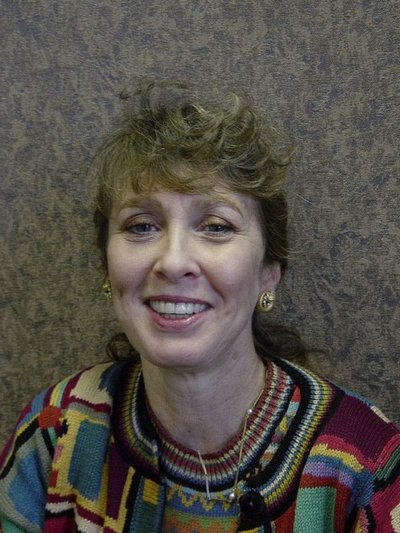October 27, 2005
Bit of good luck aids helpful twin registry
It started as a classic bad day. Dr. Dedra Buchwald, UW professor of medicine and director of the Chronic Fatigue Syndrome Cooperative Research Center, had lost her driver’s license and needed to put in some time at the Washington State Department of Licensing counter to replace it.
As she was doing that, though, she was asked a question that intrigued her. The form she filled out asked if she was a twin. Buchwald later discovered that because assigned license numbers include portions of a person’s last name, their first and middle initials, and birth date, twins could be assigned the same number. To prevent duplicate numbers, the twin question was added to the form several years ago.
She realized that the Department of Licensing (DOL) identification of twins could be very useful to her work. She was already keeping, as part of her research center, a registry of about 300 twin pairs that was based on at least one of the twins having symptoms of chronic fatigue syndrome or chronic pain. If it was possible to work with the DOL, she could set up a population-based twin registry, which would be much more scientifically useful for a wide variety of research questions.
After a series of discussions with the DOL staff and a lengthy approval process, Buchwald and her staff began getting limited information on the state’s twins. Washington is not the first state to have a twin registry; others include one in California and one in the mid-Atlantic states. Unlike these, however, the Washington state registry is not based on birth records. Because it identifies youthful or adult twins, the registry has relatively up-to-date information. Birth-record registries tend to lose track of female twins, in particular, since they are likely to change names when they marry.
Of course, joining the twin registry is voluntary. Identified pairs are sent a letter explaining the registry and inviting them to join. If they agree to participate in the registry, they receive an initial survey. Even if they sign up, they will not be included in any specific studies without giving consent for that project. By this summer, more than 2,000 twin pairs had signed up.
Certain kinds of research questions, particularly those about the interaction of genetic inheritance and environmental exposures or lifestyle habits, can best be answered by studies of twins. In these studies, results from identical twins, who share all genes, are compared with results from fraternal or non-identical twins, who generally share 50 percent of their genes.
For example, Buchwald notes that researchers use concordance, or similarity, in results from identical and fraternal twins to determine how much a given condition or symptom is genetically based. If a concordance rate is significantly higher in identical twins, it’s a good bet that the condition is at least partly based on inherited genes.
Now called the UW Twin Registry, the project has a director of research, Dr. Jack Goldberg, research professor of epidemiology, and an associate director, Dr. Niloo Afari, a faculty member in psychiatry and behavioral sciences. Dr. Karen Edwards, associate professor of epidemiology, directs the Laboratory Core, which collects and stores various biological samples.
Afari, who is handling much of the basic organization for the registry, said that many of the twins contacted were eager to join. “We’ve found that twins just basically know that they are special — even non-identical twins. And in many cases, they are interested in using this ‘specialness’ for a good purpose.
“In our approach to them,” Afari said, “we make it clear that there isn’t any direct benefit to them from their participation. But they are still willing to join and they understand that the information they can give us makes a unique contribution to medical research.
“I’ve been so impressed with the twins I’ve met through this project,” she said. And once her mind was focused on twins, she began running into them — or at least one of a pair, most everywhere she went. “When I mention I’m working on this, people very often tell me that they have twin cousins, or their mother is a twin, or even just that they wonder what it would be like to have a twin!”
Support for the UW Twin Registry comes from several sources, and is made up largely of National Institutes of Health funding. Investigators and private foundations that want to include questions in surveys also contribute support.
Among ongoing studies now using the registry are one on the factors influencing outbreaks of herpes simplex virus, one on factors that control inflammation, and another on chronic widespread pain. A new interdisicplinary study on eating behaviors is about to begin.
Researchers who are interested in the registry, or who might want to have questions included in the next survey, can contact Afari through e-mail at afari@u.washington.edu.



